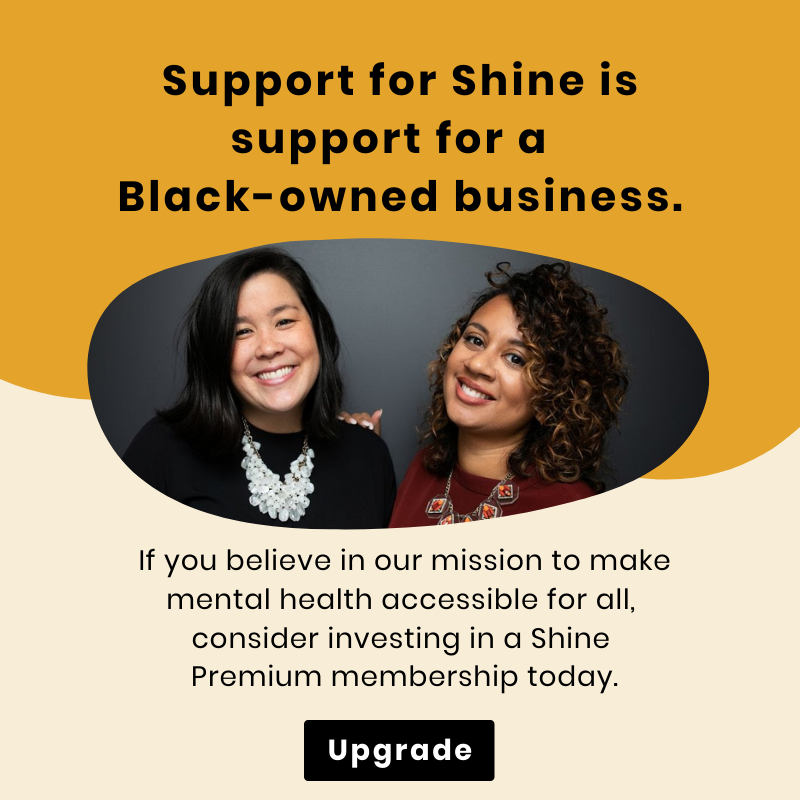4 Reflection Questions That Are Helping Me Find & Use My Voice
For the past few weeks, I’ve seen an overwhelming amount of people using their voice for good.
From using their voice to scream in the streets for justice, speaking up to stand up for others, sharing their opinion, or opening up to their communities about their experiences—people are moving loudly, and it's what we need right now.
Using your voice is an act of love and resistance that I appreciate—especially as someone who isn’t quite sure how to use my own.
In the past, I’ve found it easy to be vulnerable about my experiences as Black, as a woman, and as a daughter of immigrants. But as I’ve gotten older, self-doubt has taken a firm hold in my brain. Sometimes it can be anxiety-inducing to speak up and publicly share my story to help others. I’m worried I’ll trip over words, say the wrong thing, or offend someone by sharing my truth.
But in recent weeks, the influx of those who are getting real and raising their voices has inspired me to find my own. Maybe it has for you, too. By witnessing others, I’ve realized there’s power in sharing your story: It offers others a different perspective, it can help you validate your own feelings, and it connects you to your values.
By witnessing others, I’ve realized there’s power in sharing your story: It offers others a different perspective, it can help you validate your own feelings, and it connects you to your values.
One of the best ways I’ve found comfort in coaxing that voice within me is through reflecting. I gathered a few questions that might help you do the same.
As you work through these questions—either in your head or on the pages of your journal—remember that finding your voice can take time. This is just one way to start that journey.
1. What are my values?
Reflecting on what you value and what’s important to you can help you find the motivation to use your voice for change.
Some of my values are community, accountability, and honesty—and these are all things that I’ve been taking into account as I understand more about how I want to use my voice.
It has led to deeper self-reflection questions for me, like: How can I show up for my community? In what ways can I hold myself accountable to my goals or my community's goals?
Starting with your values ensures that whatever you do say with your platform you are doing it in an authentic way.
2. How can I use my privilege to support others?
Regardless of our identities, we all have privileges—and checking them can help you understand how you can use your voice to either share your story or show support for someone of a different identity than yourself.
For example: As a cis-gendered straight woman, I know I can use my privilege to speak up for my friends who are apart of the LBGTQIA+ community when I see or hear something out of line.
Reflecting on the ways in which you benefit from systems larger than yourself can help you identify how you can use your voice to uplift everyone, not just a few.
3. Who inspires me to use my voice and why?
There are so many people who have come before us all, and acknowledging them helps me contextualize the moments and movements we’re experiencing today.
Some of the people who inspire me to use my voice, for example, are those in the ‘60s and ‘70s who spoke up against some of the same injustices we’re fighting against today.
People like Angela Davis, James Baldwin, Audre Lorde, or Toni Morrison all have used their voice to educate others and hold people and systems accountable in their own ways—and that’s personally inspiring to me.
Find the people who have done the same for you, and look for inspiration in their words.
4. What's something small I can learn today about an issue I care about?
This question has come to be a personal favorite because it helps me think about ways I can act instead of just reflect.
By thinking about an issue I care about that aligns with my values, I’m making space for ways that I can take action and use my voice—even if it’s just baby steps!
Sometimes starting with a post on social media about an issue can help you warm up your voice so you can eventually speak loud and proud about what you believe in.
After you work through these reflection questions, it might be easier to remind yourself that your voice is valid. Give yourself time to use it, and know that it’s there for you whenever you feel ready.
Read Next: 5 Reflection Questions to Cultivate Hope In Your Life

Shine is supported by members like you. When you buy through links on our site, we may earn an affiliate commission. See our affiliate disclosure for more info.


